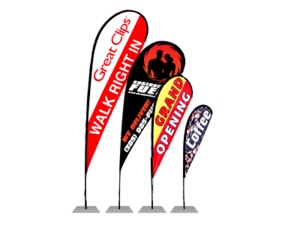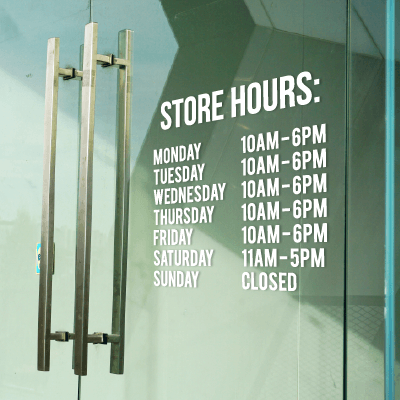
As you know, this week’s theme is celebrating Small Business Week and today’s post continues the topic by focusing on how your small business can achieve growth by developing specific types of relationships. Whether defined by more sales, more market share or further expansion, growth is different for every company. The issue becomes the “how” behind the growth. Many times small businesses only focus on what they can do internally to drive sales. For example, they hire more sales reps, place more local ads or send out more direct mail campaigns. In and of themselves, these are all great ways to grow revenues, but they come at a cost and they are not always a guarantee of success.
As humans we are relationship-driven; it is part of our DNA. So what if I told you that you could actually help grow your business simply by doing what we were created to do? As a marketing professional, I have been tasked repeatedly with developing new channels for growth. In my experience, utilizing partners, resellers and affiliates has continually been the way I can get the most bang for my buck. Although much of a small business’ success is due to product, distribution channels and sales processes, but I firmly believe that these principles can be applied no matter what industry you are in.
Partnerships are a great way to grow your business without a lot of investment. Just as you can’t be all things to all people, neither can other businesses. This presents an opportunity to partner with other companies that may have similar clientele. And many times the “I scratch your back, you scratch mine” method means you don’t have any costs in the beginning.
When I interviewed Randy Castleman, Director of Field Operations for Wilkerson & Associates, he mentioned something interesting. He said that whenever he opens a store, he always makes a point of going and talking to managers at the other jewelry stores in the near vicinity. He knows that many times customers will come in asking for diamond engagement rings, which Pandora doesn’t sell. But instead of just turning those customers away, he asks his sales associates to direct them to the nearest jewelry store that carries engagement rings. In return, managers at competing stores refer customers who are looking specifically for Pandora jewelry to Randy’s stores. What does it cost Randy? Nothing, except perhaps a nice bottle of wine at Christmas to keep the relationship friendly.
My wife has utilized partnerships as a way of gaining recognition for her business. She runs a small dessert catering company (in her free time, as she is really a wonderful full-time mom) here in Salt Lake called Eleven09 Desserts. She has no budget and no brick-and-mortar store. A few years ago, she partnered with a local non-profit to cater events for free. In exchange, her logo is on all their marketing materials and she is allowed to put up signage and banners at the events. The business she gets from those events more than compensates for the investment of catering free of charge.
No matter your business, you can find opportunities to partner with other companies and organizations that can have a significant impact on your bottom line; you just have to be open and on the lookout for when those opportunities present themselves.
A reseller is someone who actively sells various products on behalf of multiple companies but doesn’t actually work for those companies, much like a retailer. In this type of relationship, the reseller takes on the responsibility of the sales cycle, owns the customers and makes sure the orders are completed. For compensation, the reseller is usually allowed to purchase the products at a discount and then mark them up to whatever price they feel they can get from the end customer.
As an example, think about a event planner. Do you think that each time he hosts an event, he is the one cooking, providing tables and chairs, DJing the music, or putting together the flower arrangements? No, he contracts with those vendors to provide specific services relating to that event. Also, do you think those vendors only provide their services to that one event planner? No, they probably have a lot of contacts that call them to come work at their event. Although the vendors are working at the event, they don’t deal with the customer, they don’t worry about billing or following up after the event. The event planner is the reseller and he takes the responsibility for the client.
Research your industry and see if there are active resellers out there that may be willing to sell your products. Even if they are reseller for a competitor’s product, you still have an opportunity to come in and develop a relationship. Keep in mind, these business are looking to grow as well. If you can make them a better offer or just show them that you value the relationship, I guarantee they will push your product over a competitor’s. It just takes a little effort and you could reap huge rewards.
Setting up an affiliate program is an easy and inexpensive way to grow your business, especially if you have an online presence. Basically, affiliate programs are a lot like reseller programs except affiliates are paid based on referrals and usually don’t interface with the customer through the sales process. For example, go to almost any blog or news site that deals in a particular industry. You will notice a good deal of banner ads along one side of the page promoting products specifically for that industry. Each time a viewer clicks on the ad and then goes on to buy the product, that initial website gets a commision for referring the customer through its page. It’s great for the affiliate because he is getting paid and it is great for you because you are getting new business you may not have ever received otherwise.
There are a lot of different affiliate programs out there. Some require certain levels of online sales or specific lengths of time that your site has been up and live. If you don’t have an online presence, get one. Even if your product isn’t sold online, it doesn’t matter. That is where consumers, both B2B and B2C, go to get their information. “But if I don’t sell online, what good is an affiliate program?” People refer businesses they like all the time. Create your own manual affiliate program. Hand out business cards and ask potential affiliates to refer your business and in turn they earn a percentage of the sales. It’s a win-win and you never know, that relationship may drive so much sales that you can actually start selling online!






































